London, 18 Rajab 1436/7 May 2015 (MINA) – Alienated and suspicious of political agendas, Muslims in Britain have often felt cut off from the country’s political life, widely regarded as the unwarranted victims of religious profiling.
With the increasing number of Muslims in the UK, questions revolving around British Muslims’ political participation, preferences and aspirations have been many, On Islam quoted by Mi’raj Islamic News Agency (MINA) as reporting.
“Even though British Muslims have become more active and involved when it comes to politics, representation within Britain’s political institutions is still lagging,” independent political researcher Camilla Sheridan told OnIslam.net.
Though Muslims are undeniably becoming more visible in the UK, in terms of socio-political participation, the community has yet to make its mark on Britain’s political field.
Also Read: UK PM Keir Starmer Urges Full Investigation into Civilian Deaths in Gaza
“Muslims are not being adequately represented in the UK and this mainly goes back to a social and history gap,” Sheridan said.
“Muslims have yet to become visible political leaders. If there are many community leaders, few Muslims occupy high offices.
“This, of course, is expected to change as the new generation of British Muslims will push for change and enter Britain’s political arena with greater confidence.
According to projections by the US-based Pew Research Centre, the proportion of the British population identifying themselves as Christian will reduce by almost a third by 2050 to stand at just 45.4 percent, compared with almost two-thirds in 2010.
Also Read: Amnesty Condemns EU’s Refusal to Suspend Israel Agreement as “Betrayal of Innocent Lives”
As noted by the Telegraph in a report published earlier in April, “Global study predicts one in nine Britons will be Muslim by 2050.” Interestingly, the rise of Islam as the main religion will coincide with the UK becoming “one of the least religious countries in the world overall.”
The expanding role of Muslim is expected to cross the English Channel to reach Europe.
Professor at Science Po, Andre Gatineau (France) explained, in exclusive comments to OnIslam, that all European countries will likely see the most changes in political participation as its Muslim communities are much greater integrated.
“Britain’s Muslim community has been more socially and politically active and this will undeniably be reflected on the political arena,” he said.
Also Read: UN Special Rapporteur Urges EU to Halt Partnership with Israel
“More British Muslims will seek to fill higher office positions. This is actually a very positive development as it will encourage social cohesion and dialogue.
“The only real way to combat discrimination is through political participation and representation. It’s only legitimate for a community to seek fair political representation,” he added.
Problems
If more Muslims in the UK feel like they want to step up and be heard, is there a structure enabling them to do so? Is there a party representing their interests and aspirations?
Also Read: Greek Port Workers Block Military Shipment to Israel, Refuse to Support Genocide in Gaza
Dr. Parveen Akhtar does not seem to think so.
In a lecture he gave in Bradford on April 30, the doctor argued that: “The failure of mobilizing the Muslim vote for an Islamic political party in the UK reflects, to a large extent, the lack of a coherent Muslim voice and agenda, but also a desire to work within the British political system.”
Nasim Ahmed recently wrote on the issue of Muslim representation and civic participation.
“The potential for influence will remain unrealized because the Muslim vote is not organized in any meaningful way on a national level. It is swayed by no group or institution; and mosques, contrary to what some believe, are not in the business of exploiting the sincerity of Muslims to influence how they vote,” he wrote.
Also Read: Germany Slams Israeli Plan to Relocate Gazans as Human Rights Violation
So if Muslims in the UK have numbers and visibility on their side, it appears a lack of political and social cohesion, as well as disenfranchisement, are the obstacles impeding progress.
Muslim Engagement & Development (MEND) department head, Azad Ali stated that “It’s not simply a case of getting Muslims to vote.
“It’s about getting Muslims to develop a more holistic and healthy attitude towards politics because they have a stake in this country.”
So far, Muslims have stayed away of politics out of a mixture of fear and resentment for politicians’ latent discriminatory narrative against Islam within the framework of the war on terror.
Also Read: Freedom Flotilla’s ‘Handala’ Departs from Italy for Gaza in Effort to Break Israeli Blockade
Nasim Ahmed argues that, “Over recent years we’ve seen a conflicting image of Britain’s Muslim community, portrayed on the one hand as politically disengaged (a view that’s based largely on voter turnout), while on the other Muslims’ political engagement is viewed with suspicion and met with accusations of ‘entryism’.”
He added, “It’s an accusation that, at the very least, discourages some Muslims from engaging with the political process, especially given the community’s demography.
The Muslim community has the youngest age profile of all religious groups with 48 percent of British Muslims aged 24 and under; this is the age group that is the least likely to vote and the most politically disengaged nationally. The parallel, however, shouldn’t be taken at face value.”
Professor Gatineau is adamant that Britain Muslims will soon make the jump and push for their own representatives to run for office, and even maybe set up a new political party more in tune with their needs. (T/P006/R04)
Also Read: UN Rights Office Reports 798 Gazans Killed While Seeking Humanitarian Aid Since Late May
Mi’raj Islamic News Agency (MINA)





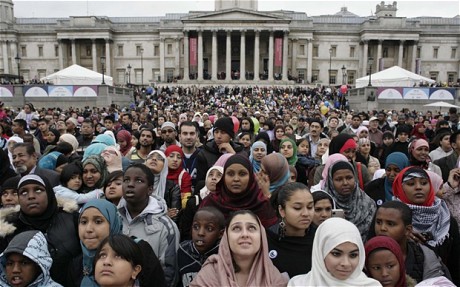





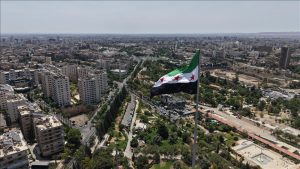

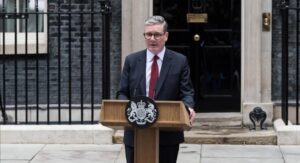
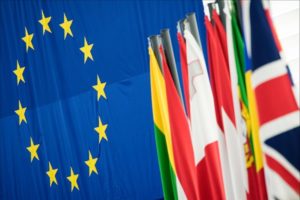
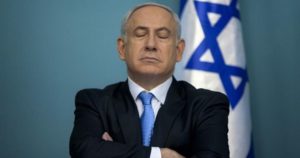
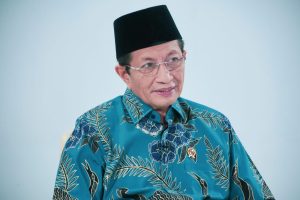
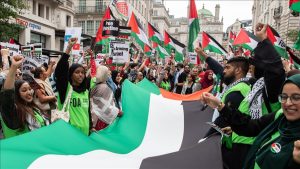

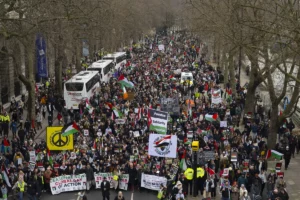
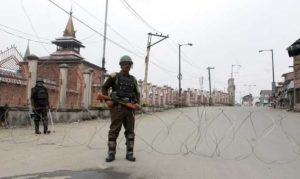
![French President Emmanuel Macron in Berlin, Germany on March 15, 2024 [Halil Sağırkaya – Anadolu Agency]](https://en.minanews.net/wp-content/uploads/2024/10/Screenshot_2024-10-22-20-57-45-59_40deb401b9ffe8e1df2f1cc5ba480b12-300x193.jpg)



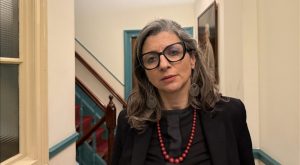
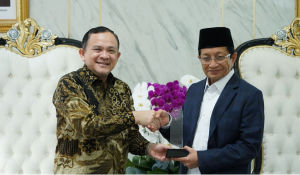









 Mina Indonesia
Mina Indonesia Mina Arabic
Mina Arabic